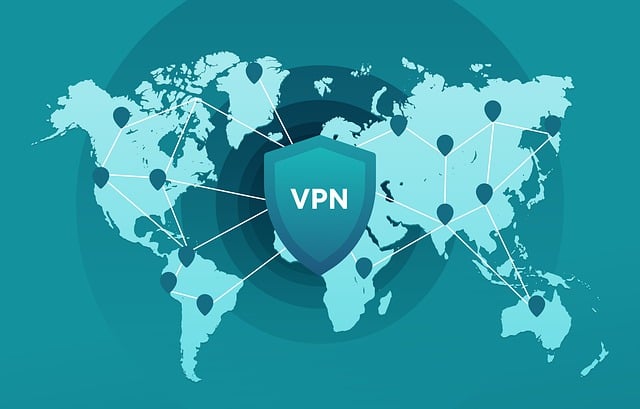Cloud-based remote access control solutions offer flexibility but require careful navigation of a complex legal landscape, including global data privacy regulations like GDPR and industry-specific standards such as HIPAA. Businesses adopting these solutions must ensure compliance to protect sensitive information from security breaches. Effective strategies involve staying updated on laws, implementing robust audit trails, conducting risk assessments, and prioritizing user experience while maintaining strict security measures. Leading companies demonstrate innovative approaches to balancing security and compliance, with examples like encryption, multi-factor authentication, and mapping data flows to avoid legal issues.
In the digital age, cloud-based access solutions offer unprecedented flexibility and scalability for businesses. However, navigating the legal and regulatory landscape surrounding remote access control can be complex. This article delves into the critical issues shaping this sector, from understanding the unique challenges of cloud services to exploring key regulatory considerations and best practices for providers. We also present compelling case studies, highlighting successful strategies for navigating these complexities, essential for any organization employing remote access control solutions.
Understanding Cloud-Based Access Solutions and Their Legal Landscape
Cloud-based access solutions have transformed how businesses manage remote access control, offering a flexible and scalable approach to security. These innovative tools enable companies to grant or deny access to digital resources located in cloud environments, ensuring data privacy and protection. Understanding this evolving legal landscape is crucial for organizations adopting these solutions.
The legal and regulatory framework surrounding cloud-based access solutions is complex due to the global nature of the cloud and varying jurisdictional laws. Data privacy regulations, such as GDPR in Europe and CCPA in California, set standards for how personal data should be handled, stored, and protected. Additionally, industry-specific regulations like HIPAA for healthcare require robust security measures for patient data. Businesses must ensure their remote access control solutions comply with these regulations to avoid legal repercussions and protect sensitive information.
Key Regulatory Considerations for Remote Access Control
When implementing remote access control solutions, organizations must navigate a complex web of legal and regulatory requirements to ensure data security and user privacy. Key considerations include understanding and adhering to relevant data protection laws like GDPR or CCPA, which govern how personal information is collected, stored, and shared across cloud-based platforms. Compliance with these regulations involves robust data encryption, access control policies, and regular audits to verify the security of remote access systems.
Additionally, industry-specific standards such as HIPAA for healthcare or PCI-DSS for financial services impose stringent requirements on how sensitive data is handled in the cloud. Organizations must integrate these compliance mandates into their remote access control solutions, ensuring that access permissions are strictly controlled and monitored. This involves implementing multi-factor authentication, logging all user activities, and maintaining detailed audit trails to meet regulatory demands and safeguard critical information.
Ensuring Compliance: Best Practices for Cloud Service Providers
Ensuring compliance is a critical aspect for cloud service providers offering remote access control solutions. With data privacy regulations and security standards constantly evolving, providers must implement robust practices to safeguard sensitive information. A key best practice involves staying informed about relevant laws and industry-specific guidelines, such as GDPR or HIPAA, to understand the specific obligations related to data protection and user access.
Regular audits and risk assessments are essential tools for maintaining compliance. Cloud service providers should establish a comprehensive audit trail, meticulously documenting access rights, user activities, and data handling procedures. Additionally, conducting periodic risk assessments helps identify potential vulnerabilities and ensures that security measures align with the latest industry benchmarks. Proactive implementation of these practices fosters trust among clients and demonstrates a commitment to securing remote access control solutions.
Case Studies: Success Stories in Navigating Legal & Regulatory Challenges
In the realm of cloud-based access solutions, successful navigation of legal and regulatory challenges is not just an option, but a necessity. Case studies from leading companies highlight innovative approaches that balance security and user experience with compliance. For instance, one global tech giant implemented a robust remote access control solution, leveraging advanced encryption and multi-factor authentication to safeguard sensitive data while ensuring adherence to international privacy regulations. This strategy not only maintained their competitive edge but also fostered trust among users and partners alike.
Another notable example involves a financial institution that adopted a cloud-based collaboration platform. By meticulously mapping data flows and access permissions, they avoided potential legal pitfalls associated with data sovereignty and regulatory compliance. Their success story underscores the importance of proactive compliance strategies in the ever-evolving digital landscape, particularly for remote access control solutions that connect employees, partners, and customers across borders.
Cloud-based access solutions have revolutionized remote work, but they also bring complex legal and regulatory challenges. Understanding the unique landscape of data privacy laws, security standards, and compliance requirements is essential for businesses implementing these solutions. By adhering to best practices, such as conducting thorough risk assessments, implementing robust security measures, and keeping up with evolving regulations, cloud service providers can ensure legal compliance and protect their users’ sensitive information. Navigating these challenges successfully fosters trust, enhances data integrity, and strengthens the overall effectiveness of remote access control solutions.
